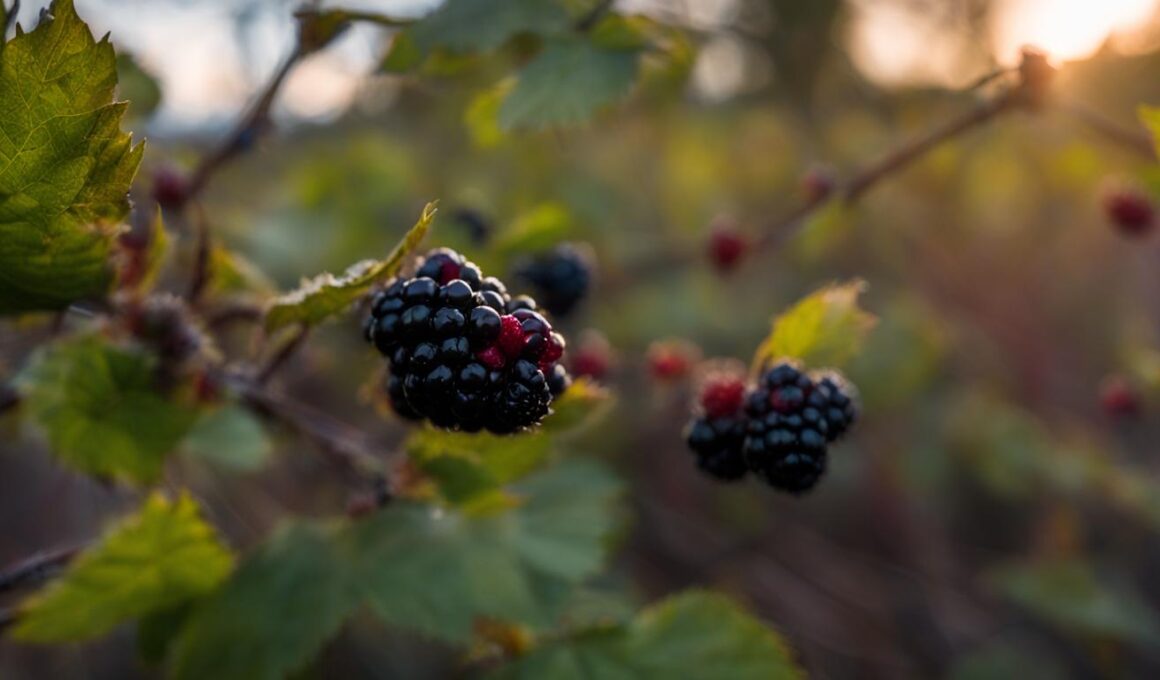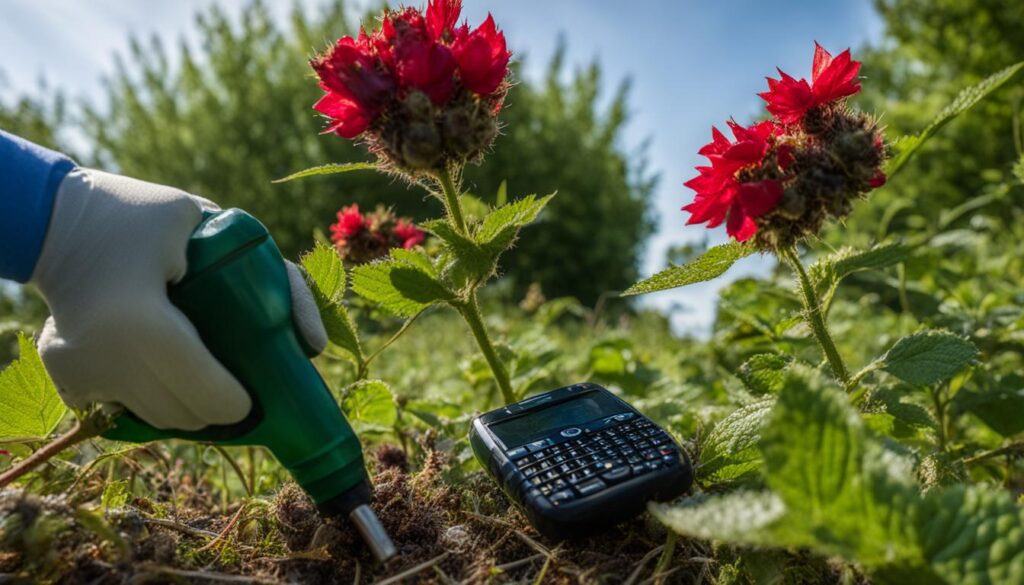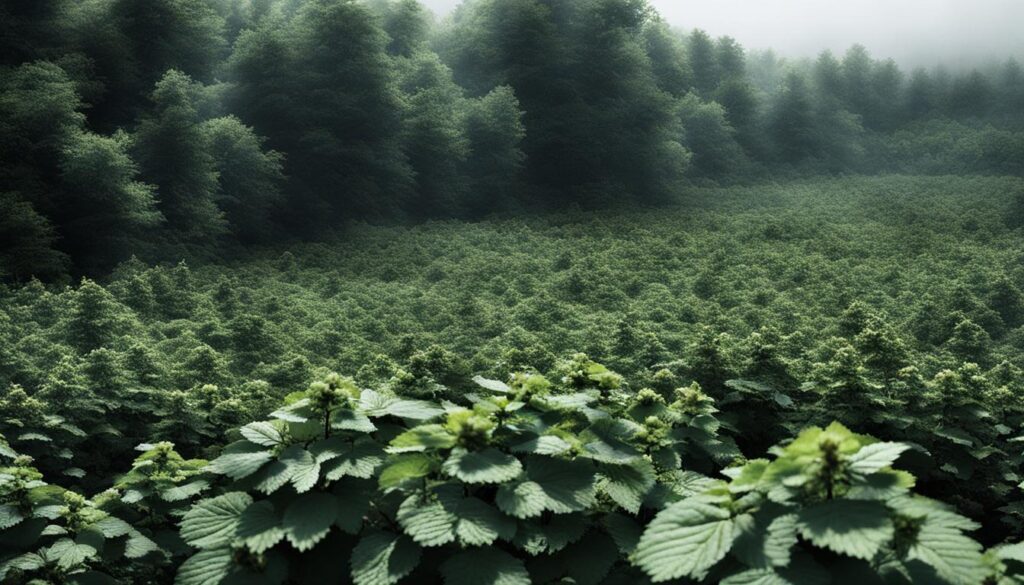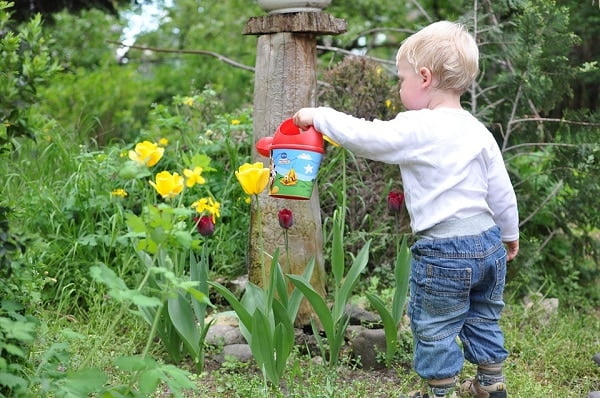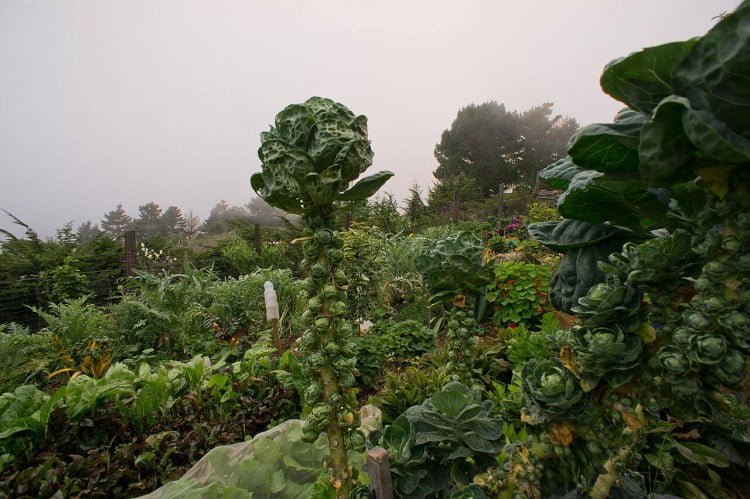If you’re dealing with wild blackberries taking over your garden or yard, you may be wondering if Roundup is an effective solution. Roundup is a widely used herbicide that contains glyphosate, a powerful ingredient that can help control and eliminate blackberry bushes. In this article, we will explore how Roundup works, when to apply it, and its potential effects on the soil and surrounding vegetation.
Post Summary
- Roundup is a non-selective systemic herbicide that is effective in killing blackberry bushes.
- The best time to apply Roundup is in the spring and early summer when the temperature is between 45 to 90°F.
- Roundup works by soaking into the foliage and disrupting the plant’s growth enzyme.
- It takes approximately 24 hours for Roundup to work on blackberry bushes.
- Roundup can stay in the soil for at least six months, with the half-life of glyphosate ranging from 3 to 249 days.
How Does Roundup Kill Blackberry Bushes?
Roundup kills blackberry bushes by containing glyphosate, which moves through the plant’s leaves into the phloem and disrupts a critical growth enzyme. This prevents the weed from growing new branches and leaves, ultimately causing it to wilt and die. Roundup needs to be sprayed directly on the leaves for it to be effective. The best time of day to apply Roundup is early morning or late afternoon in warm climates and late morning through the afternoon in colder climates. It is important to choose a calm and dry day to apply Roundup to avoid damaging unintended plants.
How Does Roundup Kill Blackberry Bushes?
Roundup kills blackberry bushes by containing glyphosate, which moves through the plant’s leaves into the phloem and disrupts a critical growth enzyme. This prevents the weed from growing new branches and leaves, ultimately causing it to wilt and die. Roundup needs to be sprayed directly on the leaves for it to be effective. The best time of day to apply Roundup is early morning or late afternoon in warm climates and late morning through the afternoon in colder climates. It is important to choose a calm and dry day to apply Roundup to avoid damaging unintended plants.
When applying Roundup to blackberry bushes, it is crucial to spray the herbicide directly onto the leaves. Roundup contains glyphosate, which is absorbed by the leaves and transported to the phloem, where it disrupts a key growth enzyme. This disruption halts the blackberry bush’s ability to grow new branches and leaves, eventually leading to its demise. To achieve optimal results, it is recommended to apply Roundup during the early morning or late afternoon in warm climates, or late morning through the afternoon in colder climates. These timeframes ensure that the herbicide is absorbed efficiently by the plant. Choosing a calm and dry day for application is also important to prevent unintended damage to nearby plants.
Timing and weather conditions are important factors to consider when using Roundup on blackberry bushes. Applying the herbicide during spring and early summer, when blackberry bushes are actively growing, maximizes its effectiveness. The temperature during application should ideally be between 45 and 90°F to ensure optimal absorption and efficacy. Additionally, it is crucial to avoid applying Roundup during windy, rainy, icy, or scorching conditions, as these can hinder its performance. By following these guidelines, gardeners can achieve successful results when using Roundup to control blackberry bushes.
| Advantages of Roundup | Considerations for Use |
|---|---|
| Effective in killing blackberry bushes | Avoid application during windy, rainy, icy, or scorching conditions |
| Systemic herbicide that is absorbed by the leaves and disrupts plant growth | Apply directly to the foliage of blackberry bushes |
| Best applied during spring and early summer when blackberry bushes are actively growing | Choose a calm and dry day for application to prevent unintended damage |
When is the Best Time to Apply Roundup on Blackberry Bushes?
Applying Roundup on blackberry bushes at the right time is crucial for its effectiveness. The best time to apply Roundup is in the spring and early summer when the temperature is between 45 to 90°F. This is when the blackberry bushes are actively growing, making them more susceptible to the herbicide. Applying Roundup during this period ensures that it targets the bushes when they are most vulnerable, increasing the chances of successful control.
It is also important to choose a calm and dry day to apply Roundup. Applying the herbicide during windy, rainy, icy, or scorching conditions can reduce its effectiveness. Windy conditions can cause the herbicide to drift away, potentially harming unintended plants. Rain can wash off the herbicide, rendering it ineffective. Therefore, it is crucial to check the weather forecast before applying Roundup to ensure optimal conditions for application.
Optimal Conditions for Applying Roundup on Blackberry Bushes
| Condition | Effect on Roundup Application |
|---|---|
| Temperature | Between 45 to 90°F for maximum effectiveness |
| Weather | Calm and dry conditions to prevent drift and wash-off |
| Avoid | Applying during windy, rainy, icy, or scorching conditions |
By following these guidelines, you can ensure that Roundup is applied at the optimal time for controlling blackberry bushes. Remember to always read and follow the instructions on the Roundup label for safe and effective use.
How Long Does It Take for Roundup to Work on Blackberry Bushes?
Roundup, particularly Roundup® Ready-To-Use Wild Blackberry Plus Vine & Brush Killer, takes about 24 hours to work on blackberry bushes. The spray needs to soak into the leaves and stems of the blackberry bushes to prevent them from growing, spreading, or reproducing more weeds. It is recommended to remove the dead weeds after 1 to 2 weeks to prevent them from regrowing from the roots. Roundup should be applied when there is no rain forecast in the next 24 hours to avoid runoff or the product being washed off.
When applying Roundup to blackberry bushes, it is important to spray it directly on the leaves for optimal effectiveness. The herbicide needs to be absorbed by the foliage and transported through the plant’s phloem to disrupt a critical growth enzyme, which ultimately leads to the wilting and death of the blackberry bushes.
Comparison of Roundup with Other Herbicides
| Herbicide | Time to Work on Blackberry Bushes | Recommended Application Frequency |
|---|---|---|
| Roundup® Ready-To-Use Wild Blackberry Plus Vine & Brush Killer | 24 hours | Once every 1 to 2 weeks, as needed |
| BioAdvanced Brush Killer | 2 to 4 weeks | Once every 4 to 6 weeks |
| Roundup Tough Brush Killer | 1 to 2 weeks | Once every 2 to 4 weeks |
It is important to note that the time it takes for herbicides to work on blackberry bushes may vary depending on the specific product and the growth stage of the weeds. Always follow the manufacturer’s instructions for application rates and timing to achieve the best results.
- Roundup typically takes about 24 hours to work on blackberry bushes.
- Blackberry bushes should be removed after 1 to 2 weeks to prevent regrowth.
- Roundup should be applied when there is no rain forecast in the next 24 hours.
- Other herbicides may have different time frames for effective control of blackberry bushes.
How Long Does Roundup Stay in the Soil?
When it comes to using Roundup as an herbicide to control blackberry bushes, it’s important to understand how long it stays in the soil. Roundup can persist in the soil for at least six months, with the half-life of its primary chemical, glyphosate, ranging from 3 to 249 days. This means that the herbicide can remain active in the soil for over a year, depending on various factors such as the amount used, weather conditions, and the strength of the Roundup product.
Only a small percentage of Roundup is lost due to runoff, as it adheres to the soil it comes into contact with. However, it is crucial to be cautious when using Roundup around other plants, especially blueberry bushes, as it can potentially harm them even at low doses.
| Factors affecting Roundup persistence in soil | Persistence |
|---|---|
| Amount of Roundup used | Varies |
| Weather conditions | Varies |
| Strength of Roundup product | Varies |
Therefore, if you’re planning to grow other vegetation in the treated area, it’s advisable to wait for the recommended time frame or consider alternative herbicides. Always read and follow the instructions on the herbicide label to optimize effectiveness and minimize the potential impact on the environment.
Are There Alternative Herbicides for Controlling Blackberries?
If you prefer alternative methods for controlling blackberries, there are other herbicides available besides Roundup. While Roundup is known for its effectiveness, it’s always good to have options. Some of the best alternative herbicides for controlling blackberries include:
- BioAdvanced Brush Killer
- Roundup Tough Brush Killer
- RoundUp VB02165 Ready-to-Use Assortment Bundle
These herbicides provide effective control over blackberry bushes, giving you more choices when it comes to managing these invasive weeds. It’s important to carefully follow the instructions on the herbicide labels to ensure safe and effective use.
When choosing an alternative herbicide, consider the specific needs of your blackberry bushes and the potential impact on the environment. Some herbicides may have different application requirements or target specific types of weeds, so it’s essential to choose the one that best fits your situation.
Remember, no matter which herbicide you choose, it’s crucial to apply it correctly and responsibly. Always wear protective gear, follow the instructions, and consider the potential effects on other plants and wildlife.
| Alternative Herbicides for Controlling Blackberries | Description |
|---|---|
| BioAdvanced Brush Killer | A powerful herbicide designed to eliminate tough brush and weeds, including blackberry bushes. |
| Roundup Tough Brush Killer | An effective herbicide specially formulated to control stubborn brush and invasive plants, including blackberries. |
| RoundUp VB02165 Ready-to-Use Assortment Bundle | A convenient bundle of herbicides perfect for various weed control needs, including blackberry bushes. |
The Importance of Using Roundup as a Last Resort
While Roundup is an effective herbicide for killing blackberry bushes, it is important to use it as a last resort. Many gardeners and experts recommend exhausting all other methods before resorting to chemical herbicides like Roundup. Chemical herbicides should only be used when all other options have failed to address the cause of the blackberry problem. Instead of relying solely on herbicide applications, it is crucial to understand the underlying issues and take appropriate steps to mitigate them.
Using Roundup as a last resort helps minimize the potential impact on the environment and human health. Chemical herbicides can have unintended consequences on non-target plants, insects, and other wildlife, as well as water sources. By using Roundup sparingly and judiciously, you can reduce the risk of harming beneficial organisms and ensure a safer gardening environment for yourself and others.
“Chemical herbicides like Roundup should be used as a last resort, after exploring all other options to control blackberry bushes effectively.”
When considering Roundup as a last resort, it is crucial to follow the label instructions carefully. This includes using the recommended dosage, applying in appropriate weather conditions, and taking necessary precautions to prevent any potential harm. It is essential to prioritize the long-term health of your garden and the surrounding ecosystem by embracing sustainable and environmentally friendly practices.
Remember, Roundup should only be used as a last resort after exhausting all other methods of blackberry control. By understanding the importance of using Roundup sparingly and responsibly, you can ensure a healthier and more sustainable gardening experience.
The Importance of Using Roundup as a Last Resort
| Impact | Reasons |
|---|---|
| Environmental | Minimizes harm to non-target plants, insects, and wildlife |
| Health | Reduces the risk of exposure to potentially harmful chemicals |
| Sustainability | Promotes environmentally friendly gardening practices |
Conclusion
In conclusion, Roundup is indeed an effective herbicide for killing blackberry bushes. However, it is crucial to use it as a last resort. There are alternative herbicides available for controlling blackberries, and it is important to consider these options before resorting to Roundup. By carefully following the instructions on the herbicide labels and considering the specific needs of your blackberry bushes, you can effectively control blackberries without relying solely on Roundup.
It is important to note that chemical herbicides like Roundup should be used judiciously and with caution. They should only be used when all other methods have failed. It is recommended to focus on addressing the cause of the blackberry problem rather than solely relying on herbicide applications. By understanding the underlying issues and taking appropriate actions, you can prevent the need for excessive herbicide usage.
Remember, the use of chemical herbicides should always consider the potential impact on the environment and human health. It is crucial to be responsible and use Roundup or any other herbicide in a way that minimizes harm to the ecosystem. By adopting alternative methods and approaches, you can effectively manage blackberry bushes while promoting a sustainable gardening practice.
FAQ
Does Roundup kill blackberries?
Yes, Roundup is effective in killing blackberry bushes.
How does Roundup kill blackberry bushes?
Roundup contains glyphosate, which moves through the plant’s leaves and disrupts a critical growth enzyme, ultimately causing the blackberry bush to wilt and die.
When is the best time to apply Roundup on blackberry bushes?
The best time to apply Roundup on blackberry bushes is in the spring and early summer, when the temperature is between 45 to 90°F.
How long does it take for Roundup to work on blackberry bushes?
It takes about 24 hours for Roundup to work on blackberry bushes.
How long does Roundup stay in the soil?
Roundup can stay in the soil for at least six months, with the half-life of glyphosate ranging from 3 to 249 days.
Are there alternative herbicides for controlling blackberries?
Yes, there are alternative herbicides available for controlling blackberries, such as RoundUp VB02165 Ready-to-Use Assortment Bundle and BioAdvanced Brush Killer.
What is the importance of using Roundup as a last resort?
Many experts suggest using chemical herbicides like Roundup as a last resort and addressing the cause of the blackberry problem to minimize environmental impact.
Conclusion
Roundup is an effective herbicide for killing blackberry bushes, but it should be used judiciously and as a last resort. Consider alternative herbicides and the specific needs of your blackberry bushes to minimize environmental impacts.
Can Vinegar also Kill Blackberries like Roundup?
Yes, the statement “vinegar kills grass truth” is valid. Vinegar can be an effective natural alternative to chemical herbicides like Roundup when it comes to killing blackberries. The acetic acid in vinegar disrupts the plant’s cell structure, causing it to wither and die.





